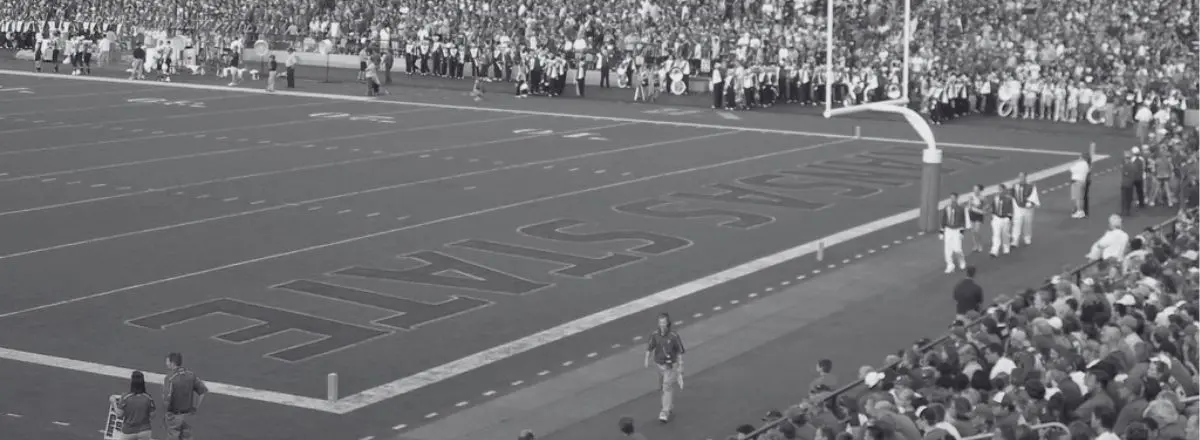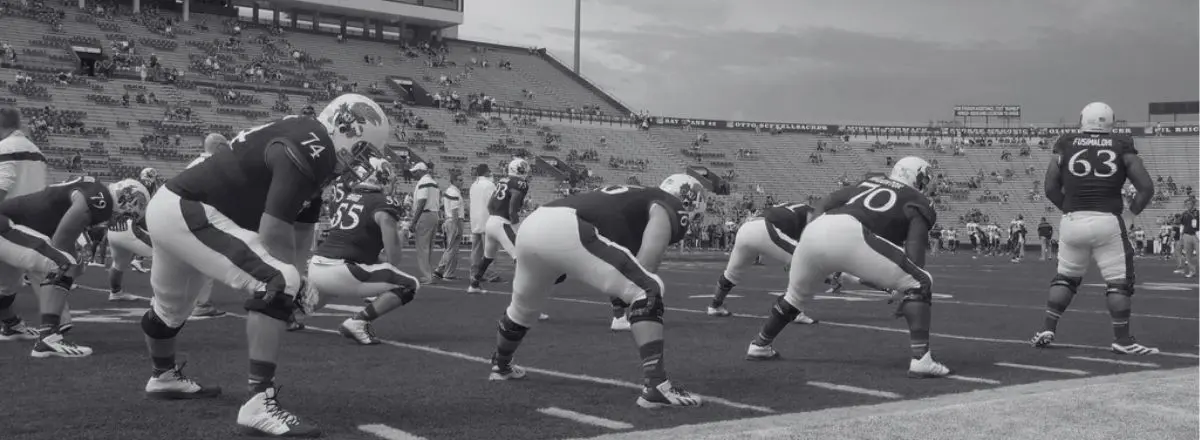When Kansas sports betting went live in September 2022, it was met by plenty of opponents. Fast forward to May 2024, and little has changed.
Financially speaking, the launch of sports betting in Kansas is a success. Month-to-month fluctuations in business persist, but the state has added more than $15 million in gambling revenue nearly two years later. On top of that, the Sunflower State is considered a sports betting growth market. So for the most part, supporters of legal gambling as well as top United States online sportsbooks operating in the region are all pretty happy.
And yet, a healthy amount of resistance to Kansas online sports betting endures. That’s not too surprising, either. The bill that legalized sports gambling in the Sunflower State had been considered divisive. In particular, opponents worried the state didn’t do anywhere near enough to regulate operators and to prevent and address problem gambling.
That sentiment remains prevailing among critics. They continue to argue that Kansas sports betting regulation lacks a certain commitment and effectiveness. Are they right? Let’s find out.
Addiction Specialists Concerned About Impact of Kansas Sports Betting on Residents…in Multiple States
Reports of problem gambling always increase once a state legalizes some form of sports betting. That’s the trade-off policymakers concede. They believe the risk of sports betting addiction is more manageable (acceptable?) than the unregulated markets residents take to when sports gambling is illegal.
Whether this is a reasonable assumption remains debatable. For our purposes, though, it’s not the focus. The spotlight is shined only on the impact Kansas sports betting has on problem gambling inside the state. And not only, we also have to take into account how it affects the residents of neighboring Missouri. For now, online sports betting in Missouri remains illegal—though, a petition that would allow residents to vote on the matter this November is pending. Recently, addiction experts have expressed concerns about the toll legal Kansas sports betting exacts on in-state residents as well as Missourians. Suzanne King of The Beacon singled out the biggest worries and issues:
“[More than] a year since Kansas legalized sports gambling, addiction specialists are seeing more signs of gambling addiction in the Kansas City area. People have wagered almost $3 billion in Kansas since sports betting became legal. Many Missourians regularly drive across the state line just to fire up a mobile betting app and place a bet before heading home. Advocates want Missouri and Kansas to put more money into helping problem gamblers. Critics contend the state’s lawmakers failed in not giving the state a bigger share and in letting sportsbooks deduct ‘free plays or other promotional credits’ used to draw gamblers into the habit.”
These are all valid points. And when you dig a little deeper, it sure seems like Kansas sports betting could benefit from more comprehensive regulation.
Should Kansas be Doing More to Address and Prevent Problem Gambling?
The reflexive answer to this question is usually something along the lines of “Devote more money to problem gambling programs.” That’s fair. In Kansas’ case, it might also be spot-on.
Theoretically, there is always room to add funding for problem gambling programs. But the Kansas sports betting tax rate checks in at 8.7 percent. That number is in line with big markets like sports betting in New York, but it’s lower than that of fellow smaller- to medium-sized markets such as Tennessee (9.7 percent), Maryland (11.6 percent), Louisiana (11.6 percent) and Ohio (11.9 percent), among others. Granted, lower tax rates serve to entice top online sportsbooks in the USA to apply and pay for licenses. However, when you legalize online sports betting, you typically have the runway to increase the overall tax rate.
Beyond that, Kansas’ decision to let operators deduct “free plays” and other promotional programs from their tax fees significantly impacts the state’s bottom line. This is especially true during the first couple of years, when online sportsbooks in the United States tend to run out more aggressive bonuses to reel in new customers.
Would ditching the deduction program and funneling all of that money into problem gambling programs solve everything for the Sunflower State? Not even close. Addiction to gambling will always exist, even if it’s neither legal nor regulated.
Still, taking steps to increase the resources at everyone’s disposal goes a long way. And then, of course, there’s another wholesale issue the Kansas sports betting market could tackle.
Is It Time for Kansas Sports Betting Regulators to Enact Stricter Advertisement Guidelines?
The subject of sports betting advertisements in the United States has become a common talking point in recent months. Now that the rate of sports betting legalization in the USA has slowed—there are only so many states, after all—the focus has shifted to optimizing the experience and safety measures.
For the most part, Kansas online sportsbooks are able to advertise and market themselves as they see fit. That’s not unique to the Sunflower State, mind you. It’s the same way almost everywhere else.
However, this level of marketing freedom is beginning to draw the ire of experts and officials. Advertisements are so ubiquitous it increases access and, by extension, temptation. Especially when you consider how many marketing campaigns are built around “free play” language and specials.
Many have suggested more rigidly limiting sports betting advertisements while also implementing educational programs that inform underage residents about the risks associated with legal sports betting. Rolling out these changes isn’t something that can be done overnight. It also isn’t particularly common at the moment. But some states are starting to take the idea more seriously. As one example, the state of Ohio has proposed restrictions on sports betting advertisements. Massachusetts sports betting regulators are also trying to form a self-exclusion program that spans multiple states, if not across the entire country.
So, should Kansas be doing more to make legal sports betting in the USA a safer experience? Without question. Absolutely. But frankly, so should the rest of the country. And hopefully, it’s only a matter of time before the USA at large does just that.
Take a look at this list of the top online sportsbooks so you can find one that works for all of your sports betting needs:
-
EXCLUSIVE BONUS
 50% bonus up to $250Play Now
50% bonus up to $250Play NowT&C apply, 18+, Play responsibly
- EXCLUSIVE BONUS
 125% up to $1,250Play Now
125% up to $1,250Play NowT&C apply, 18+, Play responsibly
- EXCLUSIVE BONUS
 225% up to $3,625Play Now
225% up to $3,625Play NowT&C apply, 18+, Play responsibly
-
 50% bonus up to $250Play Now
50% bonus up to $250Play NowT&C apply, 18+, Play responsibly
-
 125% up to $2,500Play Now
125% up to $2,500Play NowT&C apply, 18+, Play responsibly












